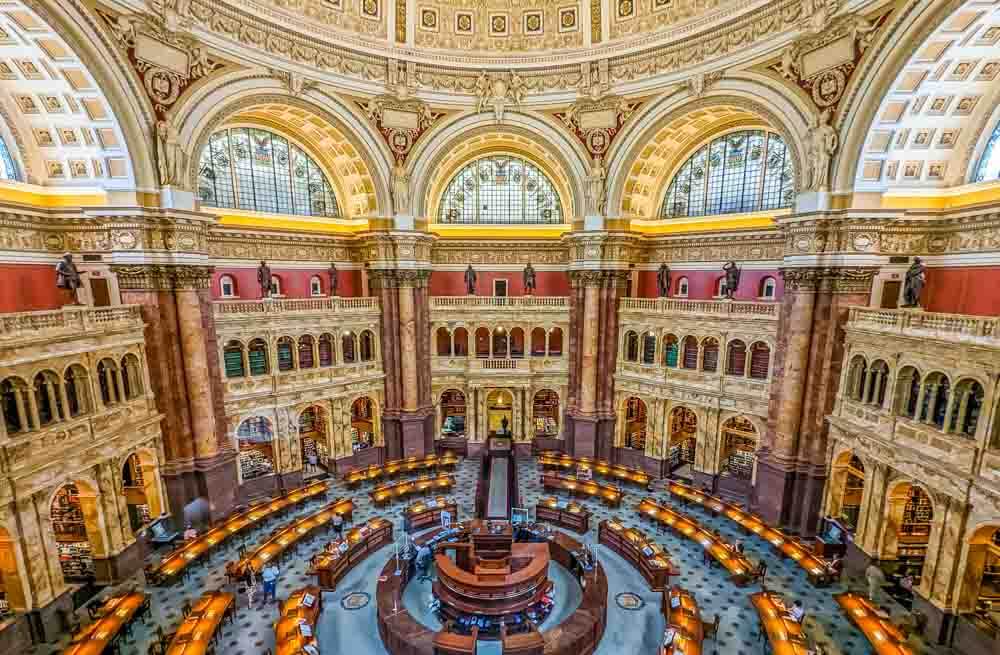The Library of Congress, the National Library of the United States, is situated in the Thomas Jefferson Building on Capitol Hill.
I had spent the morning doing a tour of the US Capitol itself so with the library being just across the road it was perfect timing for me to head over and take in a second great building and interior. Plus, just like the Capitol, the Library of Congress is free to visit…bonus.
The building, and especially the Library, has quite some history, from small beginnings to being a now huge service to not only Congress and other US libraries but also the whole of the US people and the rest of the world.
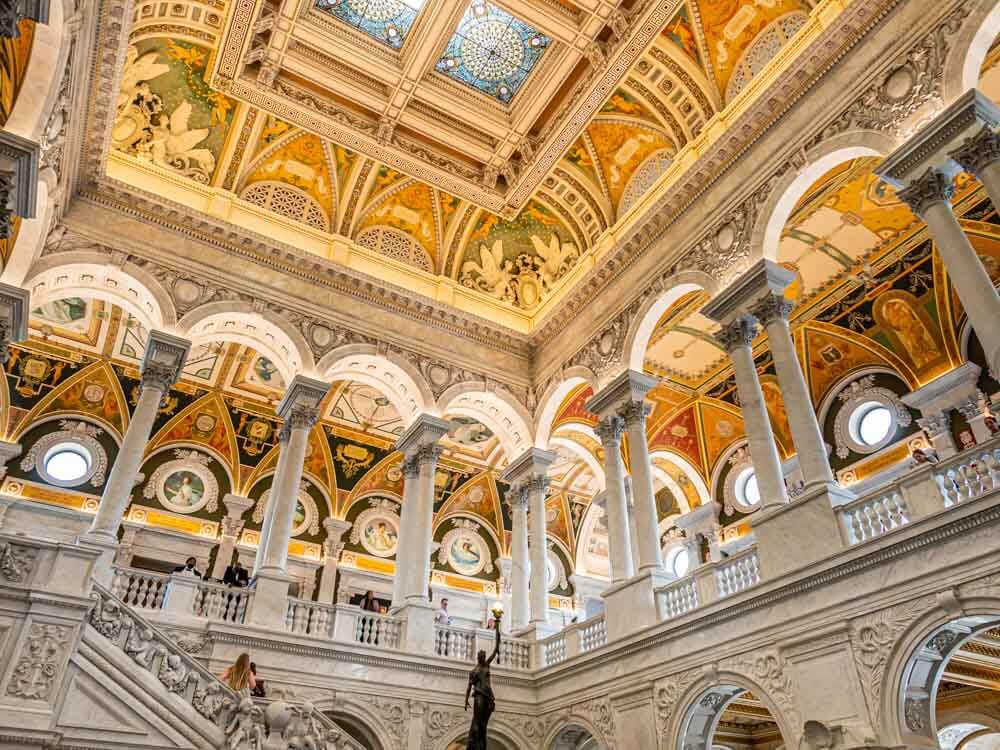
Brief History of The Library Of Congress
To begin the history we need to go back to the time of the founding fathers. They were all well educated and read so you can imagine that books and resources were of interest to them. In fact, wherever the government sat before Washington, DC, there became an important library.
This is shown in the New York Society Library, the oldest library in the US, plus the Free Library of Philadelphia.
In 1783, James Madison came up with the idea of a specific library for Congress and in 1800 the then President John Adams gave it the go ahead when the national government moved from Philadelphia to Washington, DC.
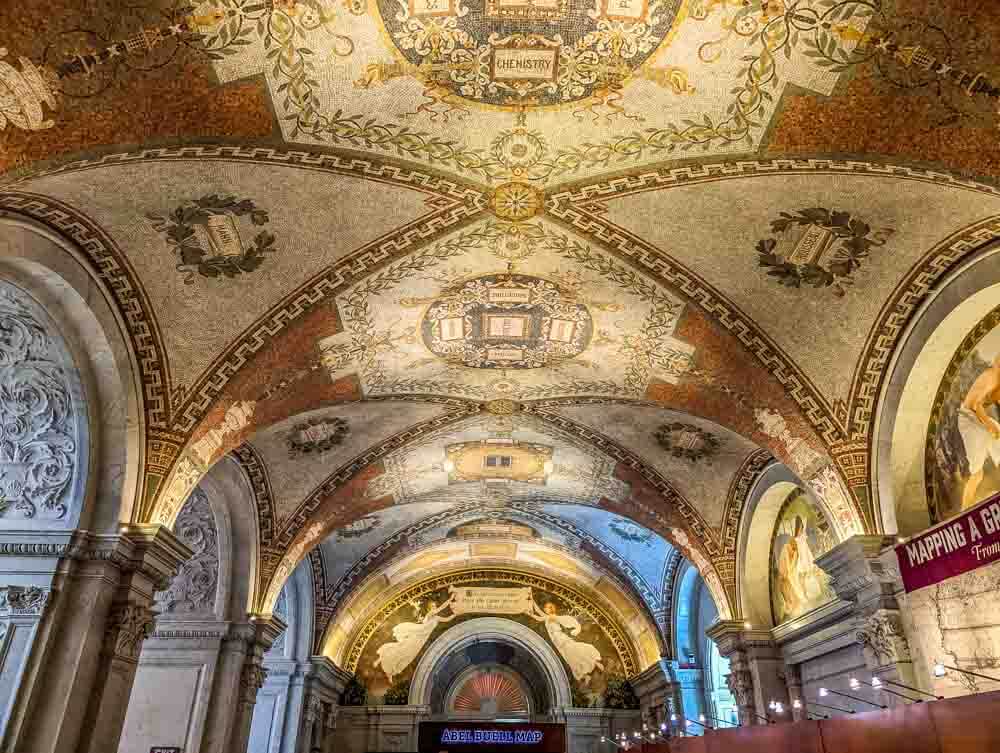
He used $5000 of funds taken from Congress to make it happen and the project was overseen by the first ever joint congressional committee.
At this time, the library was situated in the Capitol building.
Thomas Jefferson had a big part to play. He was the one who, in 1802, created the librarian role and ensued that the librarian would be appointed by the president from that point forward.
After he retired he still had a huge role to play. In 1814 the British burned down the Capitol and White House as part of the 1812 War. The library was lost, so Thomas Jefferson agreed to sell the 6,487 books he had personally collected in return for nearly $24,000.
It was Jefferson who created and moulded the ideas that the Library should be universal, used to help Democracy and shared as far as possible. His collection contained books on many and varied subjects, not just legislative references. And he wanted the Library to be diverse for the people and not just Congress.
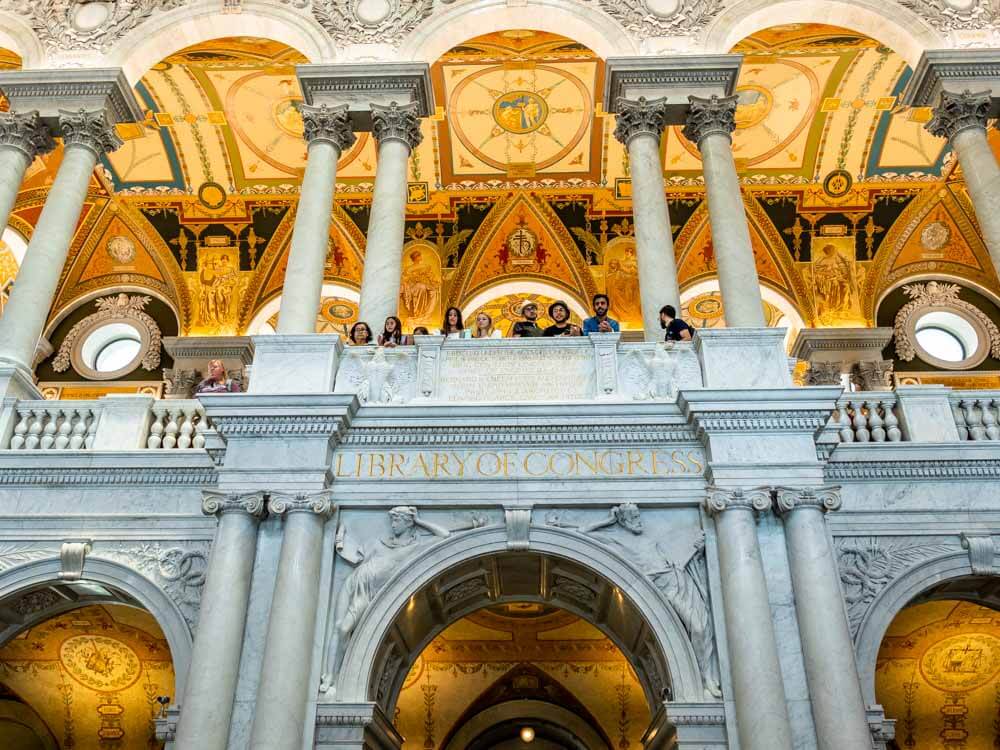
Ainsworth Rand Spofford
The next name to make his mark on the Library was Ainsworth Spofford who was librarian after the Civil War.
He was a big believer in creating a huge library and resources that were to be used not just by Congress but by all American people. A national library!
He successfully created 2 things: the first was a separate building to house the Library, and in 1897 the great Italian Renaissance style building we see today was opened.
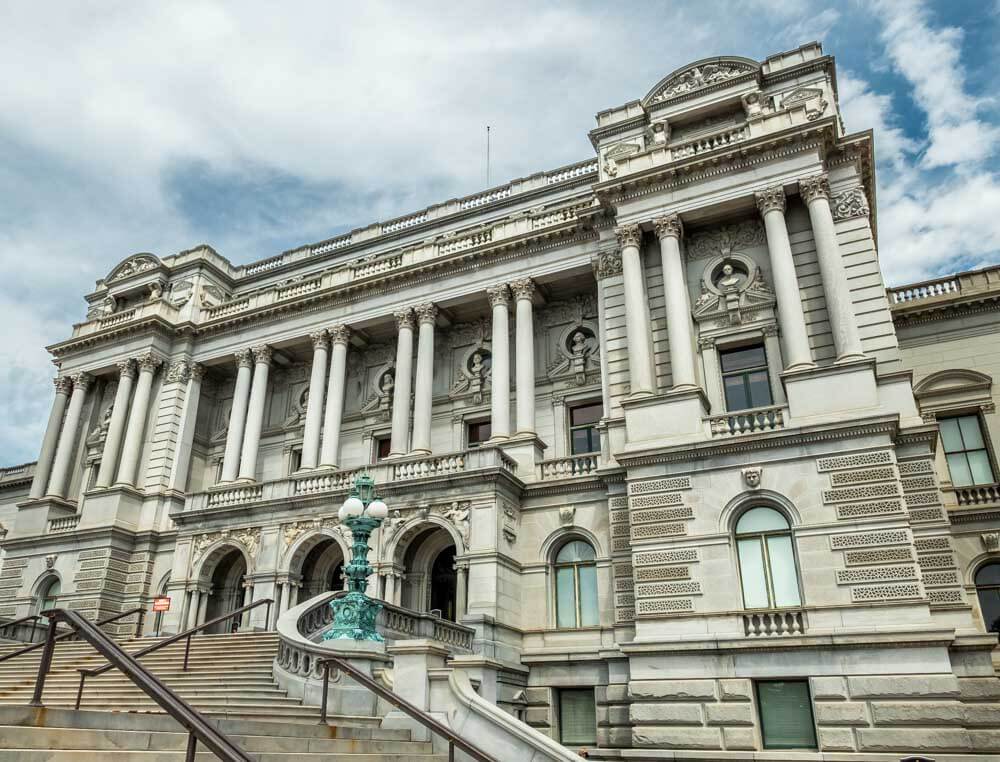
The second thing he created was the centralisation of the US copyright system in 1870. Every book or piece, even maps or photographs, that need a copyright from that point on has been sent to the library as 2 copies, thus expanding the collection enormously.
The Largest Library In The World
When what is now called the Thomas Jefferson Building was opened to great acclaim, the contents of the Library made it the largest library in the world at that time.
Many sources claim this still to be true: that the Library of Congress is the biggest library in the world. The largest library in the world, however, is the British Library.
The US Library Of Congress has around 170 million catalogued items, whereas the British Library has 170 – 200 million.
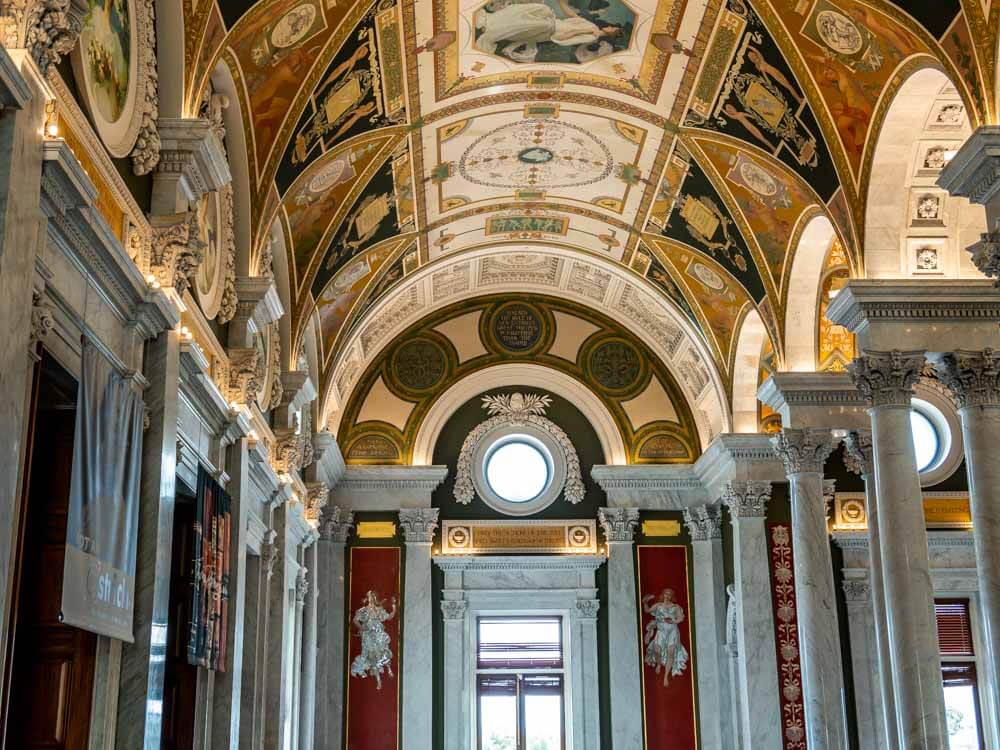
The Main Reading Room
One of the highlights of the walk around is the Library is the Main Reading Room. For the general public coming in for the self guided tour you can see it from high, behind some tough glass, without entering.
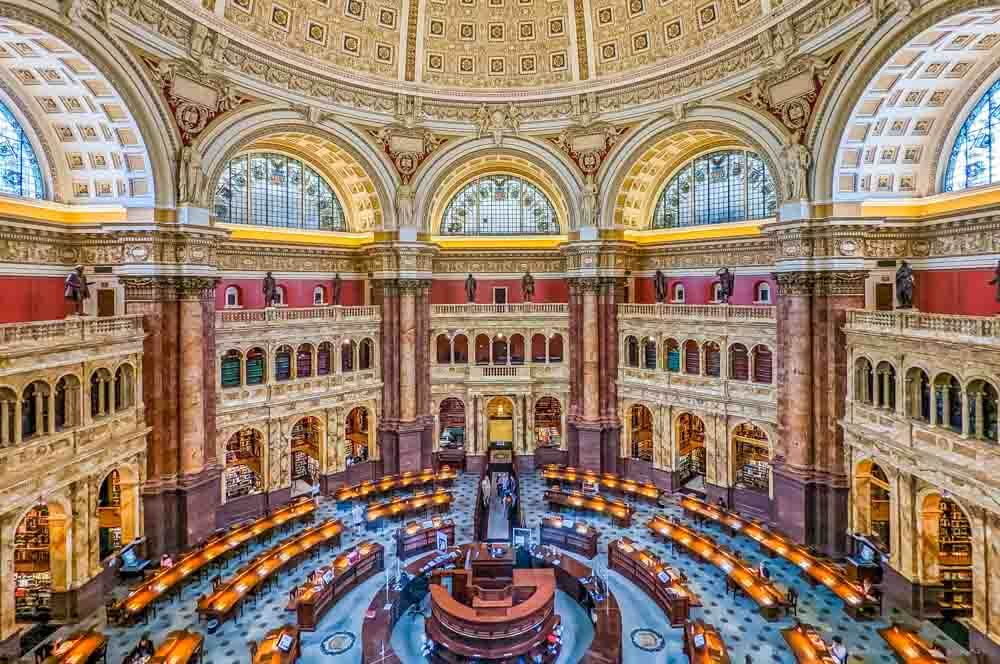
Even still, from up here it is an incredible sight. To enter the historic room itself you would need to be going there on proper research business.
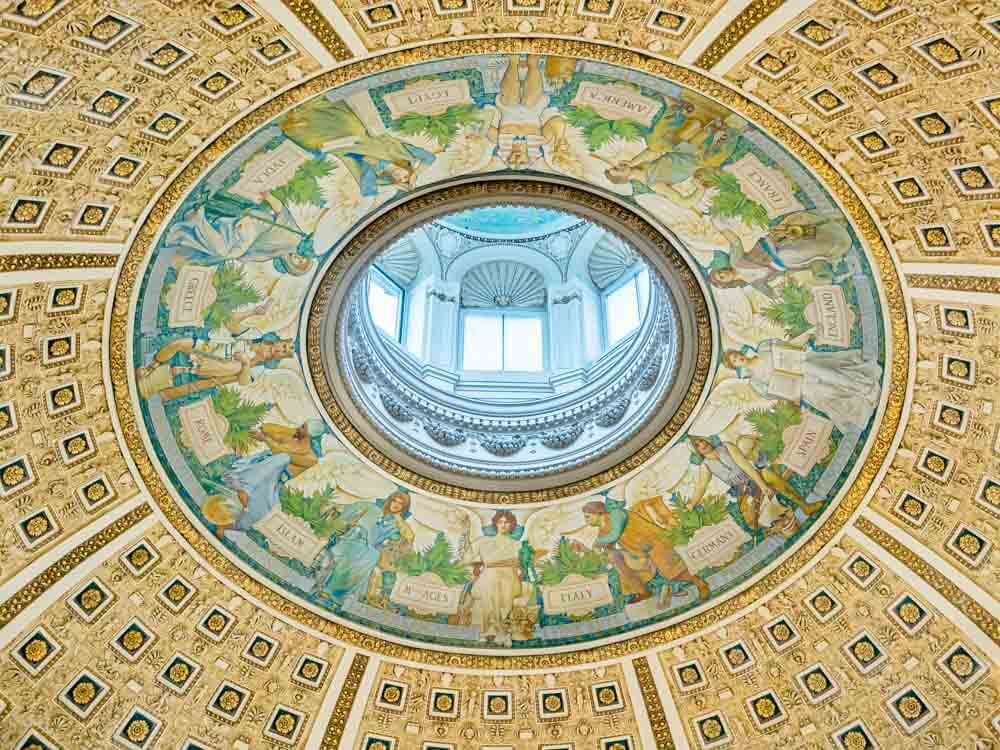
With all those items in the collection you can only imagine the work that has to be done to keep track of the millions of items and make them available when needed.
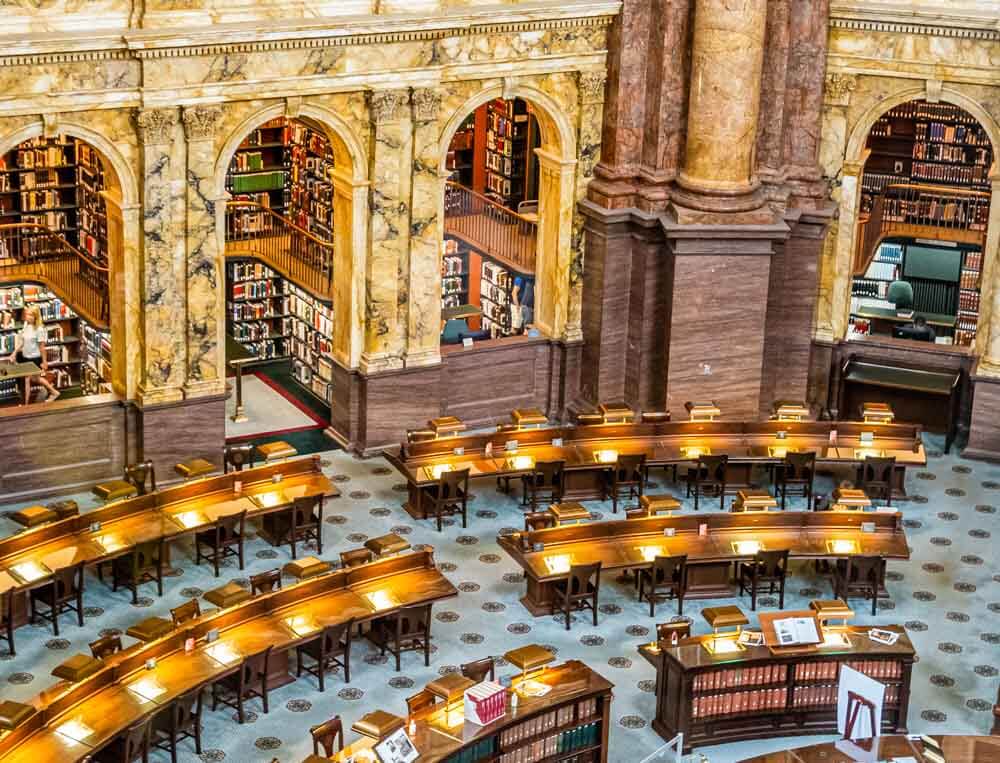
To give an idea of the scale, the Library Of Congress employs over 3000 personnel.
The Gutenberg Bible
Back towards the main hall and you see a thick glass box with an old opened book. This is a very rare copy of the Gutenberg Bible. One of the most expensive books in the world.
There are only 49 copies (or parts of it) known to exist.
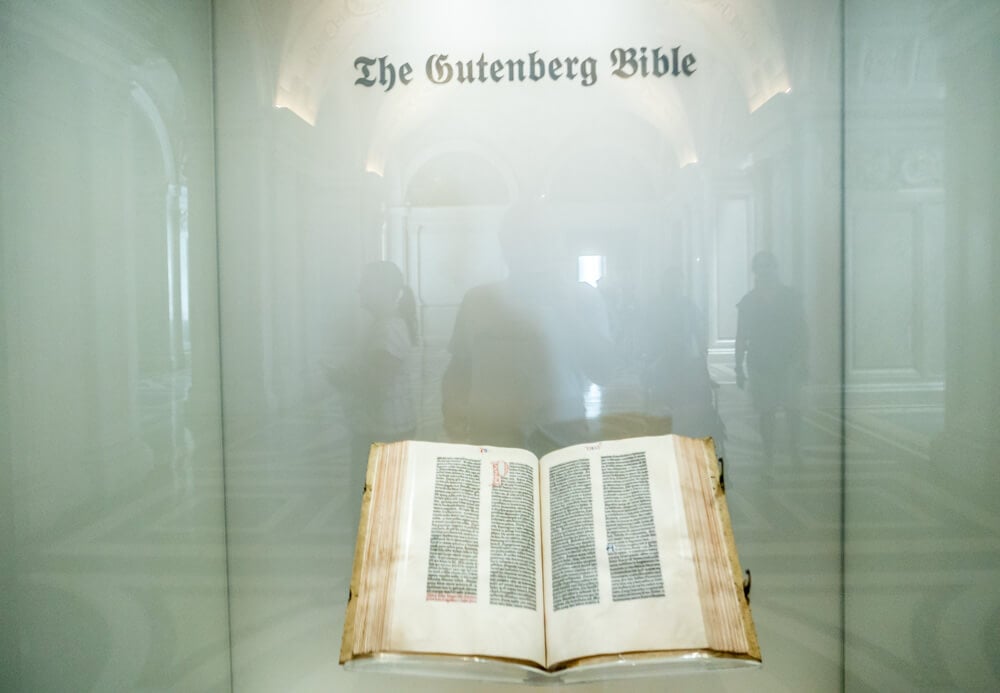
The Gutenberg Bible was the earliest book to use movable metal type to enable mass production, printed in 1450.
Of the 49 copies, only 21 are complete copies. This one here in the Library of Congress is complete. Good thing that glass is tough!
The Thomas Jefferson Library
Off the Great Hall you can head into side rooms to discover the exhibitions. One of the most fascinating ones was the Thomas Jefferson Library.
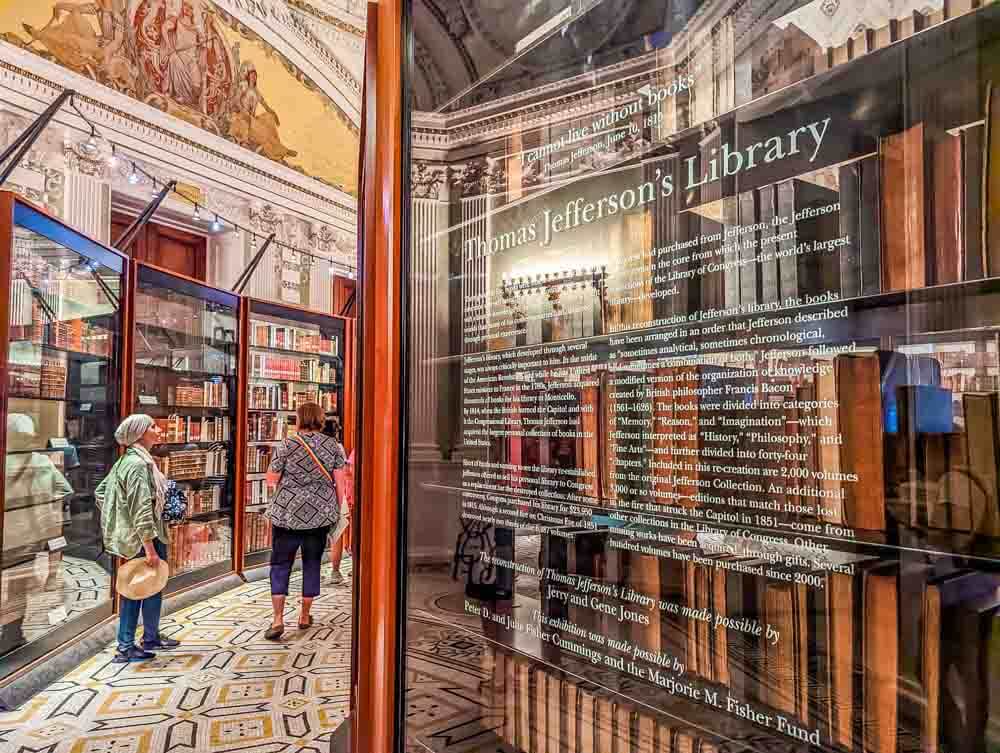
This area showcases the library as it was with the original books that were gained from Thomas Jefferson over 200 years ago.
The originals that have survived to this day are in the collection along with copies that were painstakingly replaced after fires and accidents all those years back.
The books in the collection range from those on anatomy and biology to philosophy, history, geography, and even plays by Shakespeare.
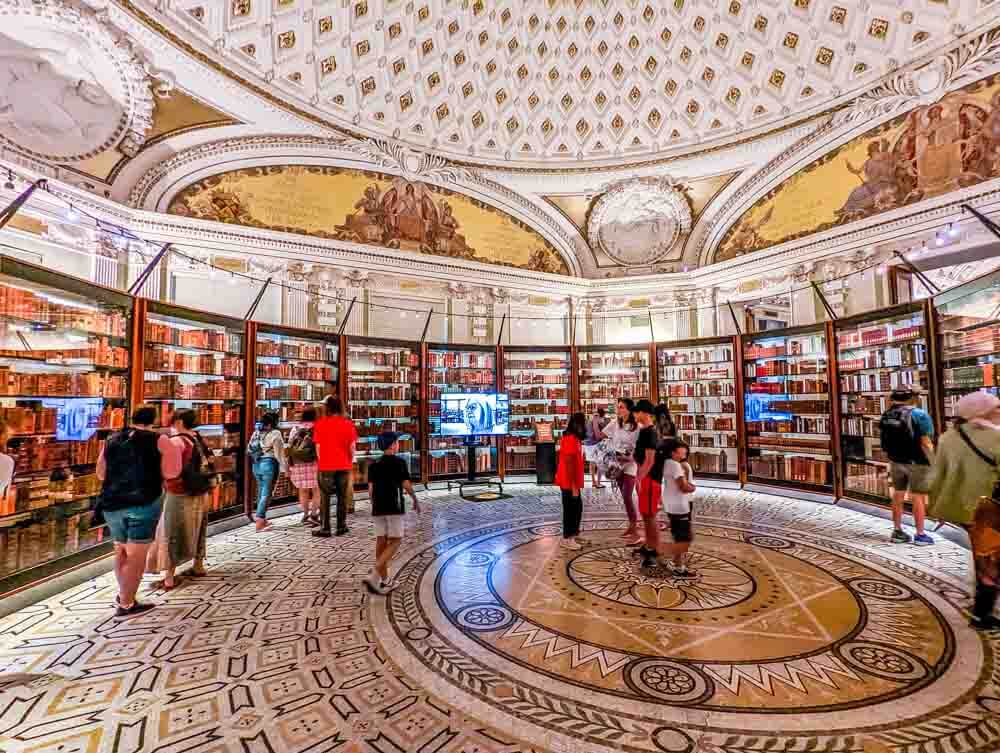
On the way to this library you pass through the exhibition area where pieces from the institution’s huge collection take their turn being on display.
When I was there the exhibition was showcasing some of the wonderful photography that has been amassed since the 1800s, from the strange to the sublime.
For instance this piece entitled Brünnhilde from 1936.
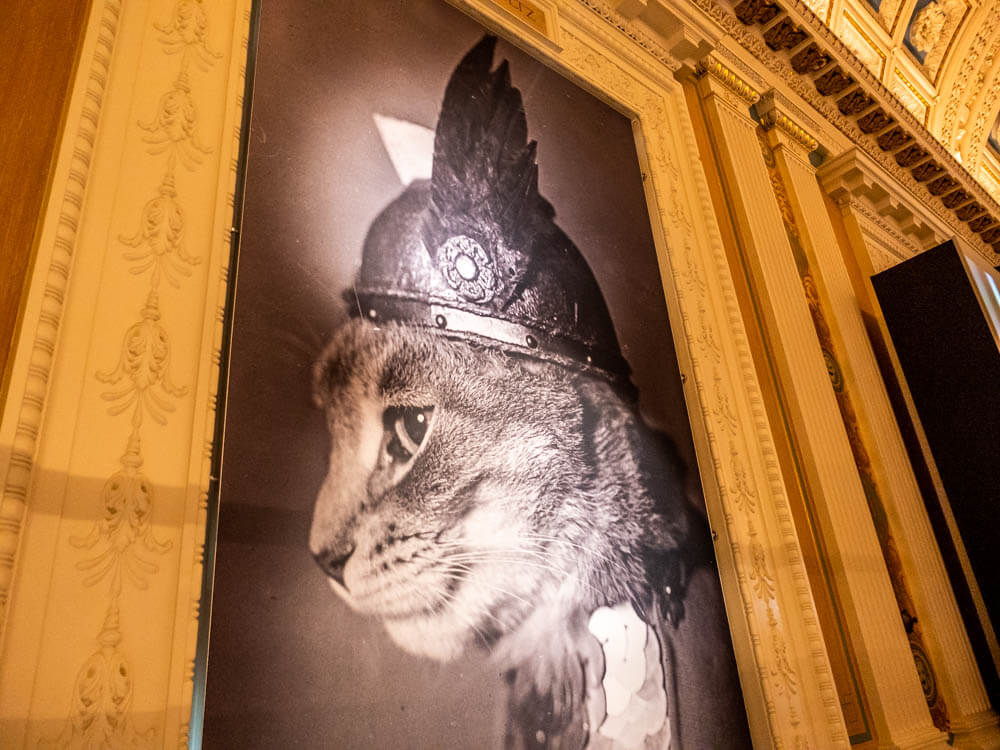
The Librarian’s Room
On the opposite side of the Great Hall from the exhibition you can see inside the Librarian’s Room.
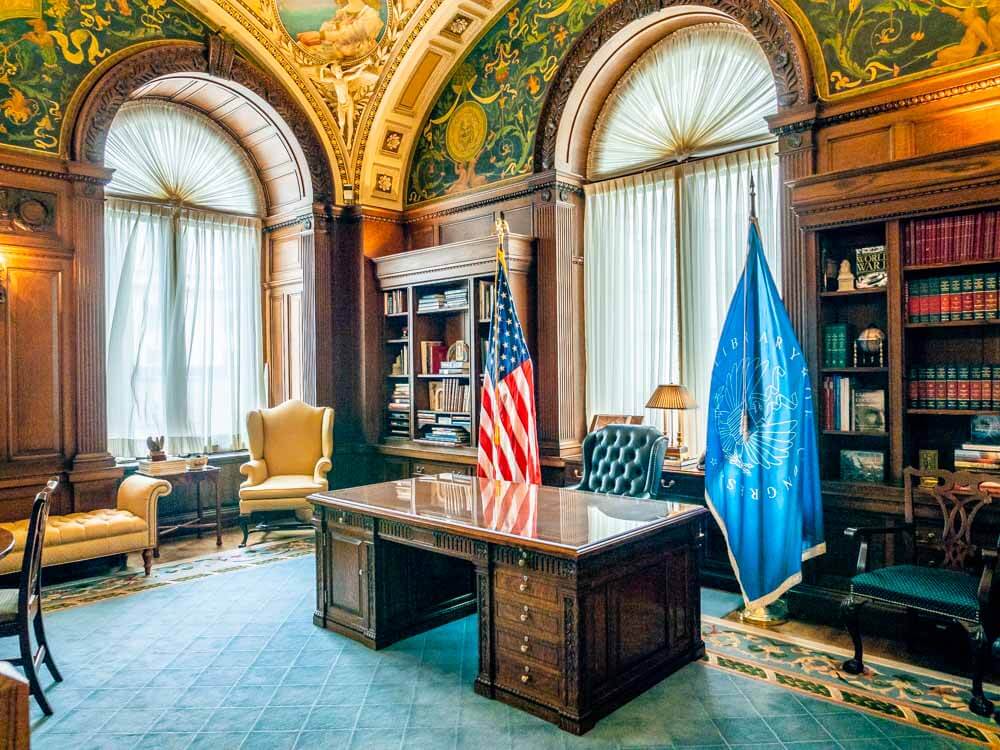
It is now a ceremonial room, and if any dignitary, King, Queen, President or Head of State comes to visit the library and wishes to peruse something, this is the room where they can do that in private.
Since the first Librarian of Congress nominated by Jefferson in 1802, there have been only 14. Up until 2015 it was a ‘for life’ role once appointed. As a result, some held the post for up to 40 years. Since 2015, however, the term length has been changed to 10 years.
The current librarian is Carla Hayden who was appointed by Barrack Obama in 2016.
The Great Hall
The centre of the building that I keep mentioning is the Great Hall. The busiest part of the building with visitors and, quite frankly, it is an outstanding looking area.
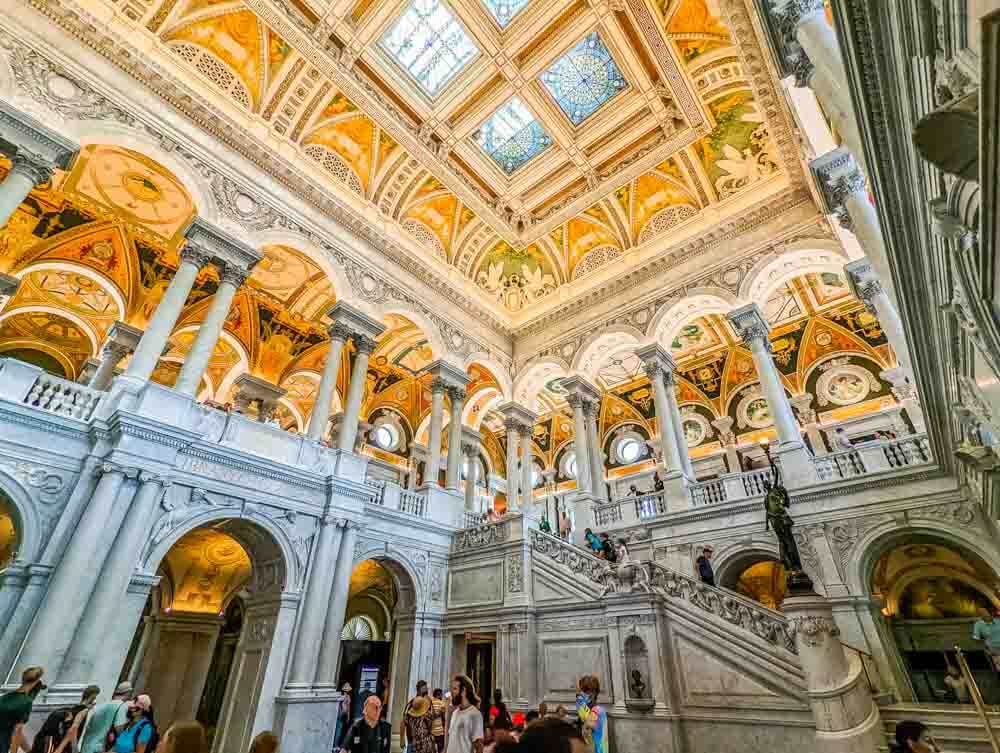
Looking closely at all that surrounds you here are decorations from many US artists and sculptures.
You’ll see eagles that represent the Federal Government and paintings of Minerva, the Roman Goddess of learning and wisdom.
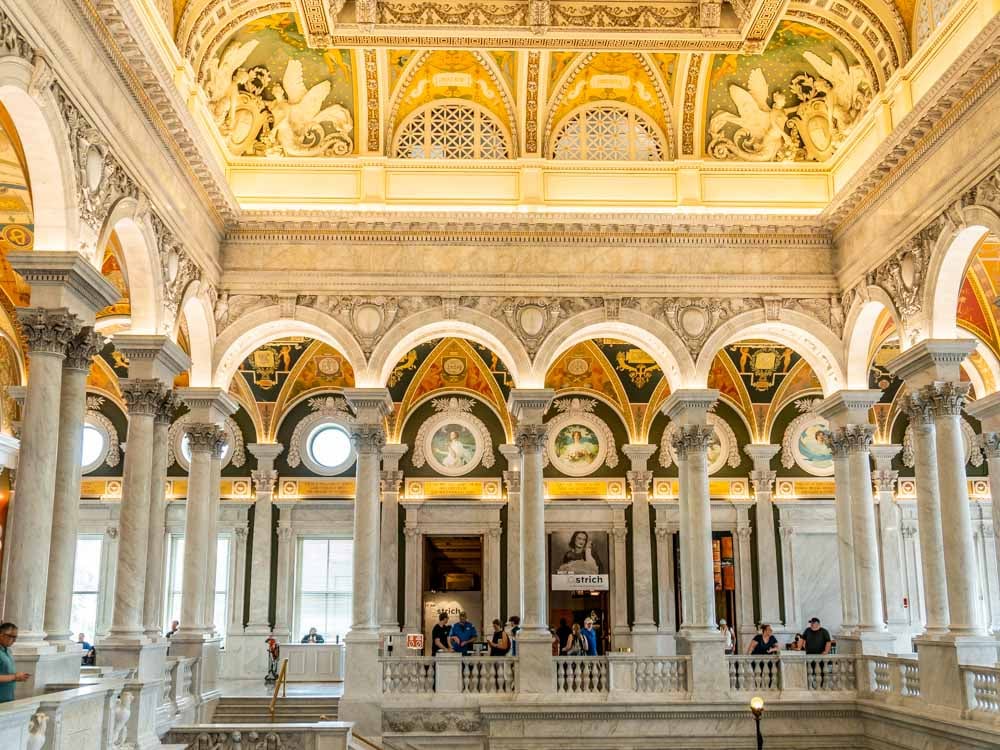
The Library of Congress Catalog
If you are a researcher or want to find information about a particular item in the Library then you’ll want to start with the catalog. Over 25 million articles have now been digitised so you can look for books, music, photographs, maps, manuscripts and so much more.
You can search by author, creator, titles, phrases and keywords. Have a look yourself.
How To Visit The Library Of Congress
As I have said, visiting the Library of Congress is free. But for safety reasons you should pre-book a timed pass through their website. There may only be a small number of passes available or no passes available if you try to enter by just showing up on a particular day.
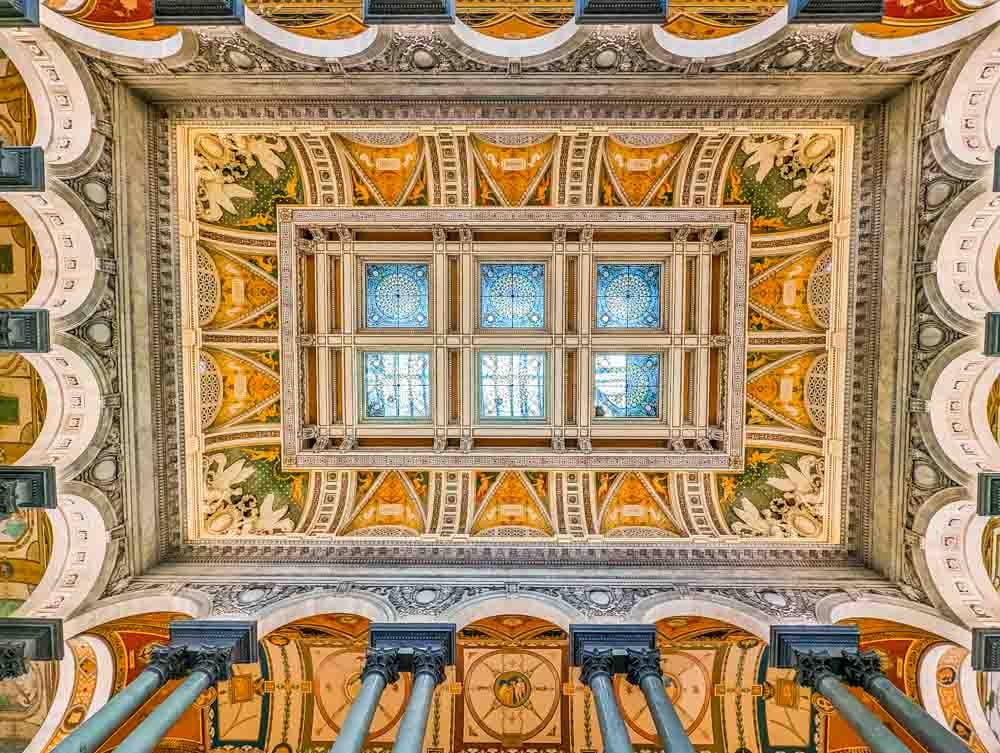
It is self guided tour, so once inside you are free to walk around and take a look at all within your own timeframe.
Conclusion
When I was in Washington, DC walking along the monuments the want to learn more and see more came on strong for me.
Was it worth visiting the Library Of Congress? Yes, absolutely. Not only is it a fascinating and beautiful building both inside and out, but it filled in many gaps in my knowledge of American history.
If you are visiting Capitol Hill then adding this visit to your itinerary is definitely worth the time.

